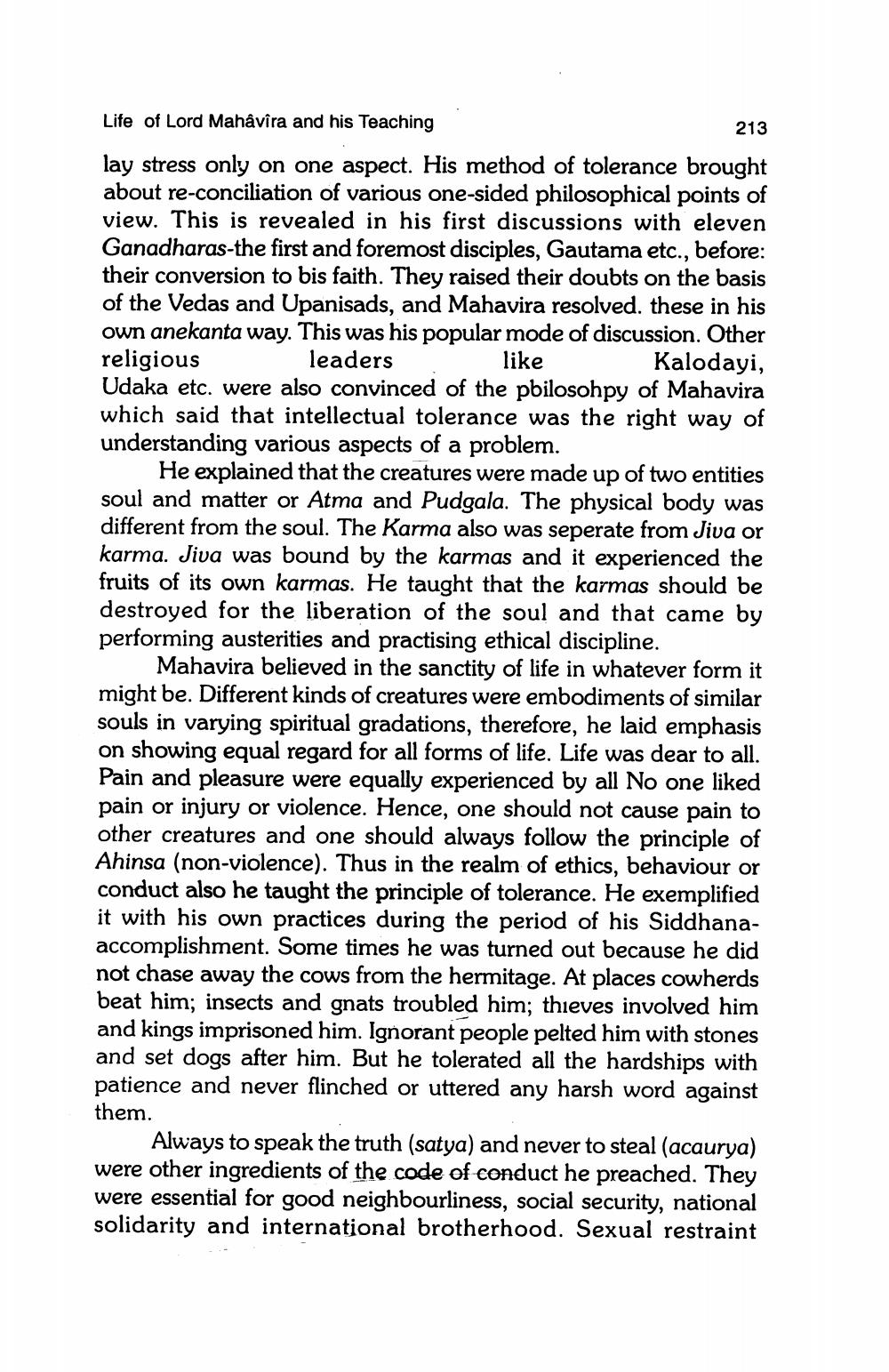________________
Life of Lord Mahâvîra and his Teaching
213
lay stress only on one aspect. His method of tolerance brought about re-conciliation of various one-sided philosophical points of view. This is revealed in his first discussions with eleven Ganadharas-the first and foremost disciples, Gautama etc., before: their conversion to bis faith. They raised their doubts on the basis of the Vedas and Upanisads, and Mahavira resolved. these in his own anekanta way. This was his popular mode of discussion. Other religious leaders
like
Kalodayi, Udaka etc. were also convinced of the pbilosohpy of Mahavira which said that intellectual tolerance was the right way of understanding various aspects of a problem.
He explained that the creatures were made up of two entities soul and matter or Atma and Pudgala. The physical body was different from the soul. The Karma also was seperate from Jiva or karma. Jiva was bound by the karmas and it experienced the fruits of its own karmas. He taught that the karmas should be destroyed for the liberation of the soul and that came by performing austerities and practising ethical discipline.
Mahavira believed in the sanctity of life in whatever form it might be. Different kinds of creatures were embodiments of similar souls in varying spiritual gradations, therefore, he laid emphasis on showing equal regard for all forms of life. Life was dear to all. Pain and pleasure were equally experienced by all No one liked pain or injury or violence. Hence, one should not cause pain to other creatures and one should always follow the principle of Ahinsa (non-violence). Thus in the realm of ethics, behaviour or conduct also he taught the principle of tolerance. He exemplified it with his own practices during the period of his Siddhanaaccomplishment. Some times he was turned out because he did not chase away the cows from the hermitage. At places cowherds beat him; insects and gnats troubled him; thieves involved him and kings imprisoned him. Ignorant people pelted him with stones and set dogs after him. But he tolerated all the hardships with patience and never flinched or uttered any harsh word against them.
Always to speak the truth (satya) and never to steal (acaurya) were other ingredients of the code of conduct he preached. They were essential for good neighbourliness, social security, national solidarity and international brotherhood. Sexual restraint




